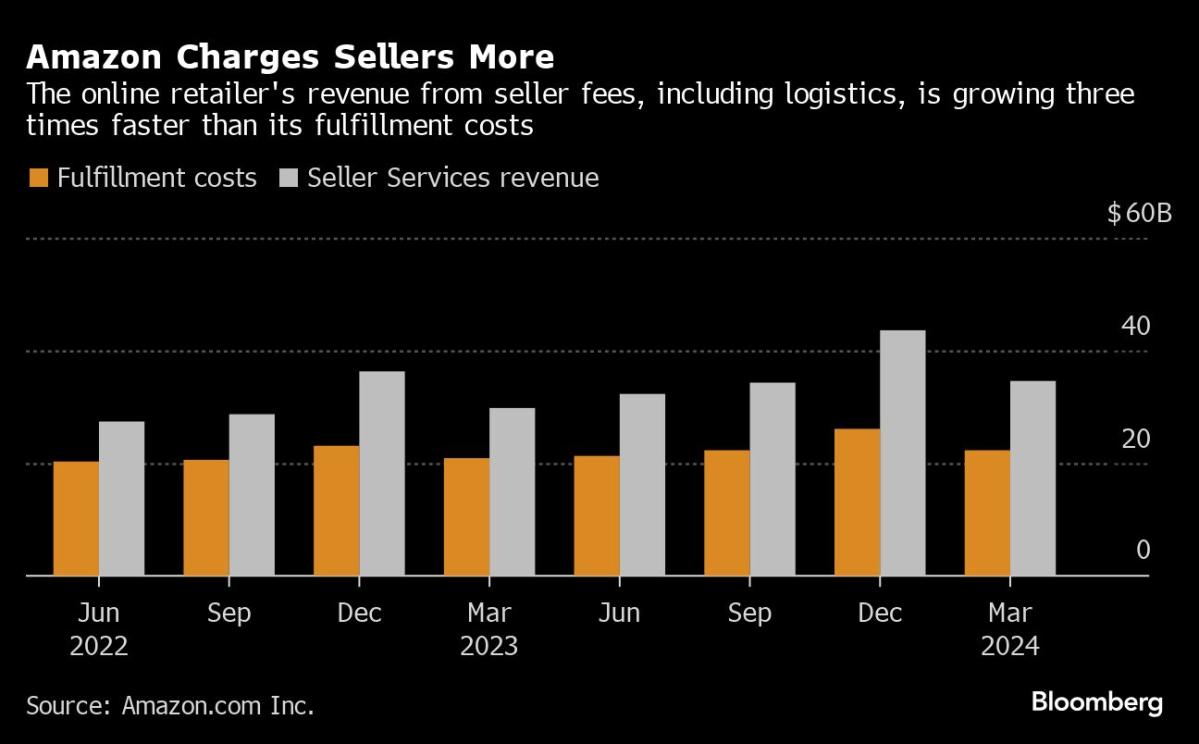(Bloomberg) — The U.S. push to ban TikTok marks a new phase in its approach to data security that could ultimately impact everything from electric vehicles to health care, reshaping trade relations between the largest economies of the world.
Most read on Bloomberg
President Joe Biden signed a law last week banning ownership of TikTok by Chinese parent company ByteDance Ltd, a move aimed at preventing Beijing from accessing the quantities of data the video-sharing app collects from its 170 million American users. The law draws on the Chinese model, viewing potential misuse of data as a threat to national security.
Although Beijing has long adopted far more restrictions on U.S. companies in China, authorities have embraced companies that play by its rules and agree to store their data locally. Elon Musk’s Tesla Inc. is a prime example: Bloomberg announced Monday that it will partner with Beijing-based tech giant Baidu Inc. for mapping and navigation functions to roll out autonomous driving features – data entrusted only to a selected group of Chinese companies.
The United States now appears to be “moving away from an open Internet with unlimited data flows and toward selective fragmentation based on national security concerns,” said Caitlin Chin-Rothmann, a researcher at the Center for strategic and international studies.
“While TikTok is currently in the hot seat in part because of its enormous popularity and the scale of its data collection, it is not the first and will not be the last Chinese company targeted by U.S. lawmakers,” she declared. “It appears that technological decoupling – or at least reducing dependence on each other – is increasingly popular among both sides. »
Data security is once again taking center stage in the growing rivalry between the United States and China, as Biden faces a rematch in November with Donald Trump, whose administration has sought to prevent countries from buy Huawei Technologies Co. equipment for 5G networks. Later, Trump proposed a “clean network” to prevent Beijing from accessing Americans’ sensitive personal data.
Even though Biden hasn’t gone that far, the conflict over the data has intensified in recent months. China is using its 2021 data security law to step up surveillance of sectors from agriculture to geography, and the United States is expressing concerns about logistics networks, autonomous driving and drones. New restrictions risk dividing parts of the global economy.
“It’s unclear where this stops, unless you want China to turn around and drag itself into a corner, and that’s obviously not going to happen,” said Rogier Creemers, assistant professor at Leiden University which studies Chinese technology policy. “As long as the risk exists, there is always a reason to say that we have not reduced the risks enough and therefore we need to reduce the risks further.”
It was
New technologies create new risks. Modern devices are becoming increasingly intelligent and acquiring unprecedented capabilities for generating and transmitting data. Cars collect information about…

